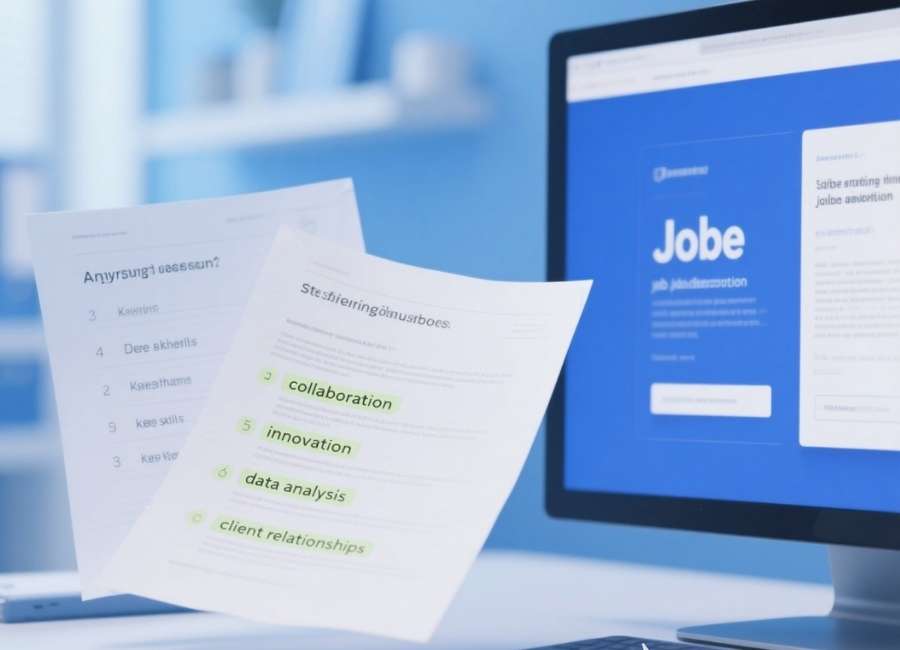You’re in a job interview, and everything is going smoothly. You’ve built a good rapport with the hiring manager, answered questions about your resume confidently, and even shared a few laughs. Then comes the question that can make even the most seasoned professional pause: “What do you bring to the table?”
This question is more than just a request to list your skills. It’s an invitation to sell yourself. The interviewer wants to know what unique value you offer that other candidates don’t. They are asking you to connect your specific abilities, experiences, and personal qualities to the needs of their company. A strong answer can set you apart from the competition and leave a lasting positive impression.
This guide will walk you through how to prepare for and deliver a compelling answer. We’ll cover how to identify your unique strengths, structure your response for maximum impact, and provide examples to help you craft your own perfect reply.
Why Do Interviewers Ask This Question?

Understanding the motivation behind the question is the first step to answering it well. When a hiring manager asks, “What do you bring to the table?” they are trying to assess several things at once:
- Self-Awareness: Do you understand your own strengths and weaknesses? Can you articulate your value clearly and confidently?
- Company Fit: Have you done your research? They want to see if you’ve connected your skills to the specific needs outlined in the job description and the company’s broader goals.
- Unique Value Proposition: What makes you different from the dozens of other applicants? This is your chance to highlight the unique combination of skills, experience, and personality that makes you the best choice for the role.
- Confidence: How you answer is just as important as what you say. A confident, well-prepared response shows that you believe in your own abilities and are ready to contribute from day one.
Essentially, they are giving you a platform to pitch yourself as the ideal solution to their problems.
How to Prepare Your Answer

A strong answer takes some planning. Here are three steps to help you prepare a response that feels genuine and convincing.
Step 1: Analyze the Job Description
The job description is your cheat sheet. Print it out or open it in a separate window and grab a highlighter. Carefully read through the responsibilities, requirements, and desired qualifications. Identify the key skills and experiences the employer is looking for.
Watch for repeated words or themes. Maybe they mention collaboration, innovation, data analysis, or client relationships. These are likely the main needs for the job. Think about how you can meet them, and jot down the top three to five requirements where you shine.
Step 2: Identify Your Unique Strengths and Skills
Now, it’s time for some self-reflection. Think about your entire professional journey. What are you most proud of? What accomplishments have delivered the most significant results? Your answer should be a blend of three types of skills:
- Hard Skills: These are the technical, teachable abilities you’ve acquired through training or experience. Examples include proficiency in a programming language, expertise in a specific software (like Salesforce or Adobe Creative Suite), or data modeling.
- Soft Skills: These are interpersonal attributes that determine how you work with others. Examples include communication, leadership, problem-solving, and adaptability. These are often harder to quantify but are incredibly valuable.
- Unique Experiences: Think about what makes your background different. Have you worked in a niche industry? Led a complex, cross-functional project? Overcome a significant business challenge? These stories can make your answer memorable.
Match your list of strengths to the requirements you identified in the job description. The overlap between what they need and what you offer is the sweet spot for your answer.
Step 3: Structure Your Response with the STAR Method
To avoid rambling, structure your answer using the STAR method (Situation, Task, Action, Result). This framework helps you tell a concise and compelling story that demonstrates your value.
- Situation: Briefly set the context. Where were you working and what was the challenge?
- Task: Describe your specific responsibility or the goal you were tasked with.
- Action: Detail the specific actions you took. Focus on your contributions.
- Result: Quantify the outcome. What was the positive impact of your actions? Use numbers and metrics whenever possible (e.g., “increased sales by 15%,” “reduced customer complaints by 30%”). (How to Answer “What Do You Bring to the Table” in Interviews, 2025)
Using a STAR example in your answer gives real evidence of your skills and helps your claims stand out.
Example Answers for Different Roles

Let’s look at how this comes together in practice. Here are a few examples tailored for different professional scenarios.
Example for a Marketing Manager Role
Interviewer: “So, what can you bring to our table?”
Candidate: “I bring a strategic and data-driven approach to marketing, combined with a proven ability to lead creative campaigns that drive engagement and revenue.
In my previous role as Marketing Lead at XYZ Corp, the company was struggling to increase its online presence and generate qualified leads. I was tasked with revamping our entire digital marketing strategy. I started by conducting a deep analysis of our target audience and competitors, which revealed a significant opportunity on Instagram. I then led my team to develop a content strategy focused on video tutorials and user-generated content.
As a result of this initiative, we grew our Instagram following by 200% in six months and increased our marketing-qualified leads by 40% in the first quarter. (McCreesh & Connor, 2017) I’m confident I can bring that same strategic mindset and results-oriented approach to your team here.”
Why it works: This answer directly addresses the needs of a marketing role (strategy, data, revenue), provides a specific example using the STAR method, and quantifies the results.
Example for a Software Developer Role
Interviewer: “What do you bring to the table?”
Candidate: “I bring strong technical skills in Python and Java, but I believe my most significant contribution is my ability to collaborate effectively with non-technical teams.
At my last company, the product and engineering teams often had communication breakdowns, leading to project delays. I took the initiative to create a new documentation process using Confluence, which included clear, simple explanations of technical concepts for the product managers. I also organized weekly check-ins to ensure everyone was aligned.
This improved our project delivery time by 25% and significantly reduced rework. (Simms & Jed, 2011) I understand this role involves working closely with your product team, and I’m confident that my blend of technical expertise and collaborative spirit will help bridge any gaps and ensure we build great products efficiently.”
Why it works: This candidate highlights both hard skills (Python, Java) and crucial soft skills (collaboration, communication). The example demonstrates problem-solving and shows an understanding of the business impact of their work.
Example for a Recent Graduate
Interviewer: “As someone new to the field, what do you bring to the table?”
Candidate: “I bring a fresh perspective, a strong foundation in digital marketing principles from my recent degree, and a genuine eagerness to learn and contribute. During my internship at ABC Agency, I was tasked with managing social media for a small client.
While I was still learning, I noticed their engagement was low. I took it upon myself to research their audience and discovered they were most active in the evenings. I proposed shifting our posting schedule and creating more interactive content like polls and Q&As.
Within two months, the client’s engagement rate increased by 50%. This experience taught me the importance of being proactive and data-driven. I’m excited to bring my enthusiasm and quick-learning ability to your team and start delivering results from day one.”
Why it works: Even without extensive experience, the graduate focuses on what they can offer: fresh ideas, a proactive attitude, and a specific, successful project from their internship.
What to Avoid in Your Answer
Crafting the right response also means knowing what not to say. Steer clear of these common pitfalls:
- Vague Generalizations: Avoid empty statements like “I’m a hard worker” or “I’m a team player.” Without evidence, these phrases are meaningless.
- Just Listing Skills: Don’t simply recite your resume. The interviewer has already read it. Your job is to connect those skills to their needs.
- Being Too Humble (or Too Arrogant): There’s a fine line between confidence and arrogance. State your accomplishments factually without bragging. Conversely, don’t downplay your achievements.
- Focusing Only on Yourself: Frame your answer around how your skills will benefit them. It’s not just about what you’ve done, but what you can do for the company.
Shape Your Winning Response
When you answer “What do you bring to the table?” you have a chance to show what makes you different. Go beyond your resume by learning about the job, knowing your strengths, and sharing real results. This way, you can give a confident and memorable answer.
Spend a little time thinking about your best achievements and practice talking about them. The better prepared you are, the more comfortable and impressive your answer will sound, helping you get closer to your dream job.















